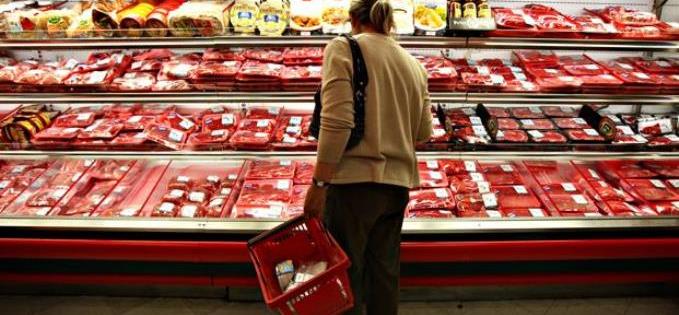HAVE you gone cold turkey on red meat?
Need an energy boost? Try red meat...
We wouldn't blame you...
Research published this week by an international panel of experts convened by the World Health Organisation has placed processed meats such as hot dogs, burgers, ham and corned beef in the same cancer classification group as alcohol, tobacco and even asbestos.
The experts concluded that each 50 gram portion of processed meat eaten daily increases the risk of bowel (colorectal) cancer by 18%.
The panel also concluded that the consumption of other red meats 'probably' raises the risk of colon cancer.
For some, it'll be hard to look at a bacon sandwich the same way again.
Still, does this mean we should eliminate red meat altogether? Is there a way to still have our steak and eat it?
While we shouldn't take such research lightly, we should also acknowledge the difference between strength and risk.
As experts have commented, the new classification does not mean 'a lifetime of ham sandwiches is the same as a 20-a-day smoking habit'.
"For an individual, the risk of developing colorectal cancer because of their consumption of processed meat remains small, but this risk increases with the amount of meat consumed,' says Dr Kurt Straif, Head of the International Ageny for Research on Cancer (IARC) Monographs Programme.
 Red meat - what are the risks?
Red meat - what are the risks?”These findings further support current public health recommendations to limit intake of meat,” explains Dr Christopher Wild, Director of IARC.
“At the same time, red meat has nutritional value. Therefore, these results are important in enabling governments and international regulatory agencies to conduct risk assessments, in order to balance the risks and benefits of eating red meat and processed meat and to provide the best possible dietary recommendations.”
With so many column inches given over to the negative effects of red meat, it’s easy to forget that red meat does have its place within a balanced and healthy diet.
Need an energy boost? Try red meat.
Need a shot of iron? Red meat.
Need a dose of multivitamins? Red meat has 'em in spades. Meats such as beef, lamb and pork are rich in vitamin D and a host of B vitamins including: Thiamin (vitamin B1), Riboflavin (vitamin B2), Pantothenic acid, Niacin (vitamin B3), Pyridoxine B6 and Folate.
B vitamins are important for the release of energy from food and they also contribute to the health of the blood and nervous system.
A deficiency of vitamin B12 (Cobalamin) can affect mood and lead to depression, and vitamin B12 can only be manufactured by bacteria - therefore can only be found naturally in animal products.
So if you’ve cut out red meat recently and been feeling more fatigued, or less refreshed when waking, try adding an extra portion of red meat into your weekly diet. If your iron levels are low you may feel dizzy, weak, and experience shortness of breath.
If stress or anxiety is your issue then red meat may assist in helping you generate a more peaceful state of mind. Decreased zinc levels along with higher levels of copper have been found in people exhibiting chronic anxiety. Red meat is a good source of zinc, which helps the body to absorb the vital trace mineral copper and equally supports the successful elimination of any excess.
The Department of Health recommends eating no more than 70g (2.5oz) of red meat a day - equivalent to two slices of roast beef or one lamb chop.
Red meat is a good source of readily absorbable, dietary heme iron which helps to transport oxygen to your muscles, and also assists in many enzymatic reactions for our body’s detoxification, metabolism, growth and wound healing.
So, if your current energy fix is chocolate, cigarettes or caffeine with a stack of vitamin tablets for mood, vim and sleep; you might want to throw them all in the bin and pop a 70g steak on your plate instead. Remember though, this needs to be lean, natural meat... burgers, sausages or other processed meats do not count.



